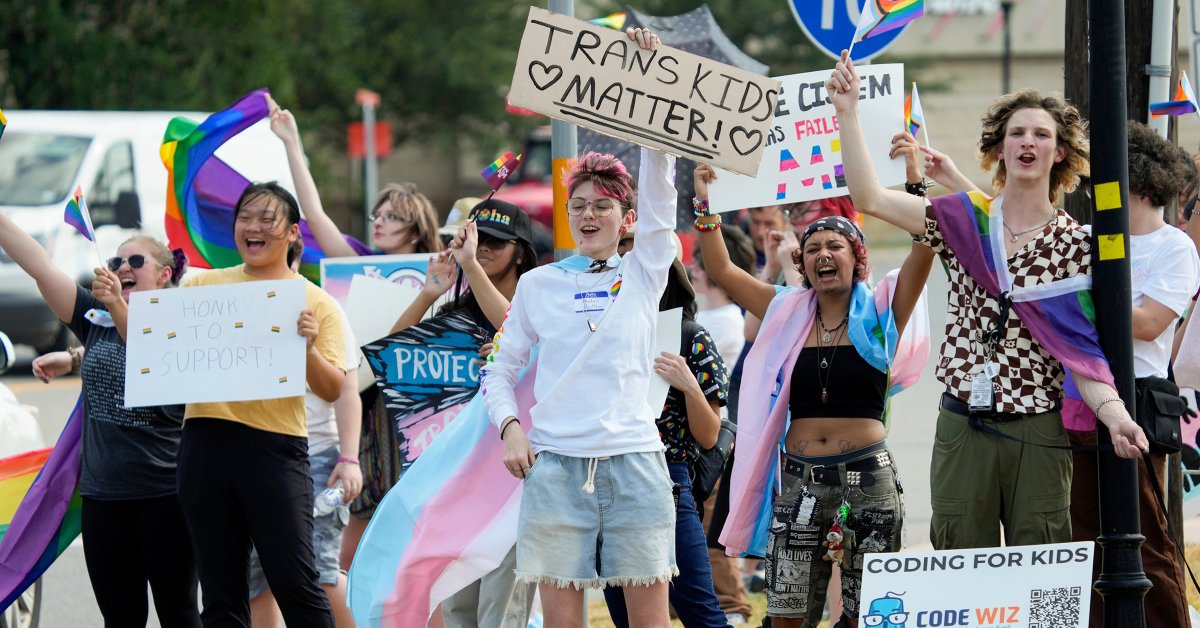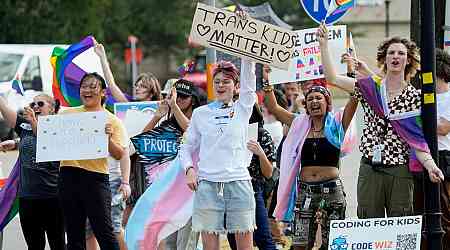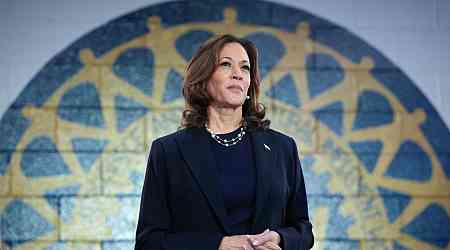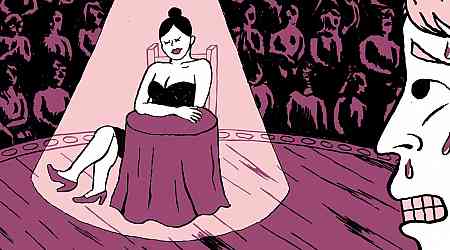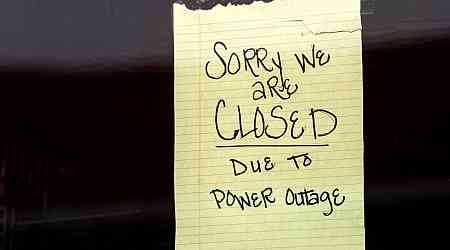
Nearly one in three LGBTQ+ students say their school has at least one anti-LGBTQ+ policy, a survey released Wednesday found.
The survey was conducted by the Trevor Project, a suicide prevention organization that provides 24/7 crisis support for LGBTQ+ youth. About 18,000 LGBTQ+ youth, ages 13-24, were polled about whether students were able to do things like use their chosen name or pronouns and use locker rooms that matched their gender identity.
[time-brightcove not-tgx=”true”]Many anti-LGBTQ+ rules in schools target students’ access to support services and affirmative spaces, though others were much broader—limiting conversations about LGBTQ+ topics both during classroom instruction and out of it. Schools with at least one anti-LGBTQ policy were also less likely to have a gay-straight alliance—a student-led club that is intended to be a safe space for queer individuals—or a gender-neutral bathroom, according to the survey. Seven percent of respondents also said that their school used to have a gay-straight alliance but stopped offering it.
The new survey adds to another Trevor Project survey published in May that found 40% of LGBTQ+ youth seriously considered attempting suicide in the last year. The latest study didn’t re-measure suicidal ideation, but found that LGBTQ+ students attending more supportive school environments had lower suicide risk rates and reported fewer depressive symptoms compared to queer youth attending schools that were less supportive. Attending a school with anti-LGBTQ+ policies also meant students were more likely to be exposed to verbal and physical attacks, as well as unwanted sexual contact, because of their gender identity or sexual orientation.
“These alarming findings signal that anti-LGBTQ+ school policies have real-life consequences on the mental health, well-being, and overall safety of LGBTQ+ youth,” Ronita Nath, Vice President of Research at The Trevor Project, told TIME. “Young people learn harmful and discriminatory behavior from the adults, communities, and institutions that raise them…When anti-LGBTQ+ sentiment is normalized in school environments, it is then internalized by students and creates a culture of intolerance and hostility towards LGBTQ+ people in general.”
School districts and local legislatures have become hotbeds for culture wars across the U.S. At least eight states—including New Hampshire, North Carolina, and Alabama—explicitly forbid curriculum about LGBTQ+ people or topics, according to the Movement Advancement Project, a nonprofit think tank. By contrast, only seven states have laws that require LGBTQ+ inclusion in state education curriculum.
And while anti-LGBTQ+ policies impact the queer community as a whole, transgender and nonbinary students are disproportionately impacted, according to Nath, as they confront barred access to sports teams and bathrooms, as well as parental notification laws, which require staff to inform parents or guardians of their child’s gender identity or pronouns. Other data by the UCLA School of Law’s Williams Institute looking at the broader effect of anti-LGBTQ+ policies, including those outside of classrooms, found that 93% of transgender youth ages 13 to 17 were living in a state that had passed or was considering a bill that targeted access to gender-affirming-care, the ability to use pronouns that match students’ gender identity, and more.
Anti-LGBTQ+ policies appear to be more prominent in certain regions. For instance, the survey found that 34% of LGBTQ+ youth living in the South reported going to a school that had at least one anti-LGBTQ+ policy—the highest rates in the country—followed by the Midwest at 29%.
The impact of such policies is perhaps best seen in states like Florida, which Nadine Smith, executive director of Equality Florida, calls the “frontline in America’s fight against the far-right anti-LGBTQ agenda.” Gov. Ron DeSantis made headlines in 2022 when he signed a bill dubbed “Don’t Say Gay” that would ban public schools from teaching about sexual orientation or gender identity. (This March, the state settled a lawsuit that allows students and school staff to write and speak about LGBTQ+ issues and people in classroom discussion, though the ban is still active in terms of classroom instruction.) A January 2023 study by UCLA’s School of Law’s Williams Institute found that 88% of LGBTQ+ parents living in Florida were concerned about the impact Don’t Say Gay would have on their children, and more than half of LGBTQ+ parents considered moving out of the state because of the bill.
“Despite what proponents of anti-LGBTQ+ policies say, these efforts do not make school safer or better for any student. Instead, they stop LGBTQ+ students from being able to bring their full selves to school, and prevent school staff and allies from providing them with the support they need,” says Nath. “Making schools inclusive of LGBTQ+ students can provide a life-saving sense of belonging for young people.”
If you or someone you know may be experiencing a mental-health crisis or contemplating suicide, call or text 988. In emergencies, call 911, or seek care from a local hospital or mental health provider.


















